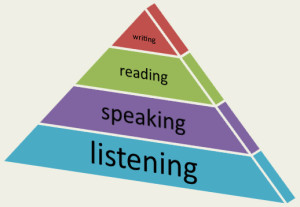6 Things To Expect from Speech Therapy at School
Your child has a speech impediment and is scheduled to begin kindergarten in the fall. Like most parents, you are filled with excitement about the upcoming year. For parents whose children have speech disorders, the excitement can be coupled with anxiety about how the other children in the class will react to your child’s speech impediment and how well your child will learn in a classroom setting. As we mentioned in our previous blog, research has shown that children with speech disorders are more likely to be the target of bullying and teasing. What can you do to help prepare your child, teacher, and your child’s class? You can start by addressing the issue with your school’s Speech- Language Pathologist. An on-site, school SLP is an excellent resource for parents to help prepare their child with language and confidence-building skills for the school year.
SLP’s provide services to children with all types of speech disorders. The type of services your child will receive in school will depend on many factors, such your child’s age, the type of speech impediment that has been diagnosed or other learning delays or disabilities. The two basic forms of speech therapy in schools include in-class and separate services (sometimes also known as pull-out services). Utilizing speech therapy services at school allows your child to continue to benefit from the whole-classroom experience while still improving communication skills. Here is what you can expect your SLP to help provide:
6 Things to Expect from Speech Therapy at School
- Work with your child to interact and communicate appropriately during question/answer sessions in class. This includes teaching your child to use appropriate volume during classroom discussions.
- Observe your child communicating in the classroom setting.
- Assist your child to develop an organizational method to keep track of classroom expectations/homework.
- Review and paraphrase information for your child if he or she is struggling with understanding instructions.
- Observe your child’s vocabulary comprehension in the classroom and assist with various tools for building vocabulary.
- Work with your child to minimize stress during classroom speaking situation. For example, teaching your child calming techniques if she suffers from stuttering.
Finally, encourage a partnership and collaboration between your child’s teacher and her SLP. This is an effective way to help prepare the class and set the stage for a successful, worry free school year for you and your child.
For additional speech disorder information , check our our guide to the 10 most common speech problems in children.



